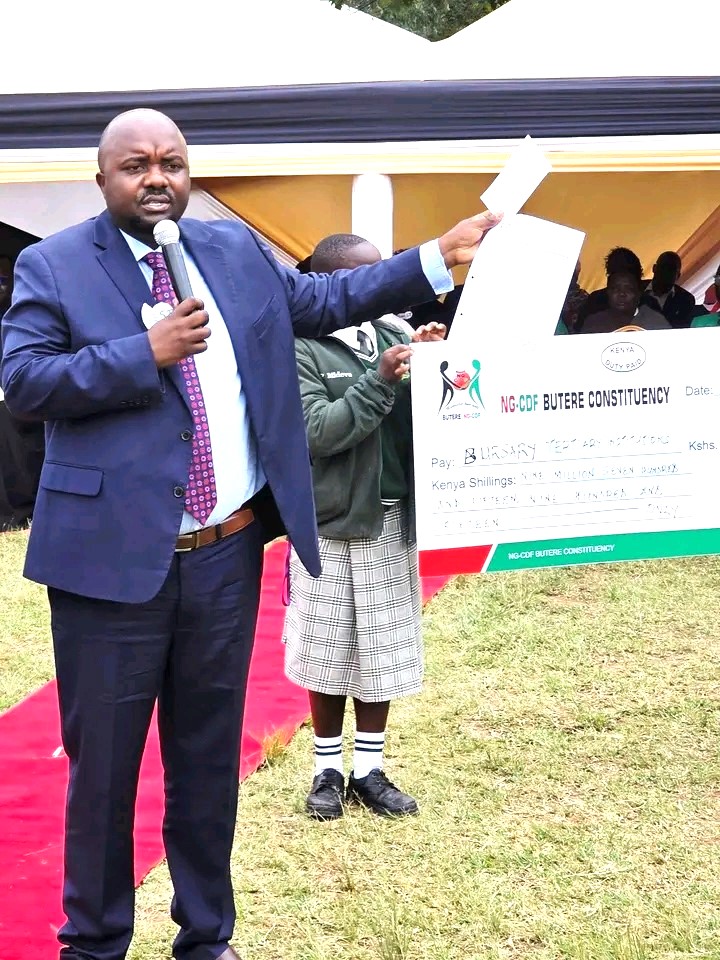By Our Reporter
A recent survey conducted by the Kenya National Examination Council (KNEC) in both Public and Private schools reveals that majority of teachers hardly attend lessons, resulting in poor syllabus coverage.
The devastating report further indicates that head teachers and principals lack adequate training in institutional management.
But a few who have successfully gone through Kenya Education Management Institute (KEMI) felt that the training was not adequate.
The report seen by Education News indicates that syllabus coverage continues to be a major challenge in the Basic Education sub-sector.
“Out of the head teachers trained in management, 59.9 per cent of them felt that the training was not adequate”, states the report.
The survey coded “Towards Quality Education: Key Messages” indicates that teacher absenteeism is affecting syllabus coverage to a large extent at 47.7 per cent.
“Frequent absenteeism by teachers is affecting syllabus coverage,” states the report.
The KNEC findings are in sharp contrast with Teachers Service Commission (TSC) report delivered by the Commission Secretary Nancy Macharia during the 42nd Kenya Secondary School Heads Association (KESSHA) National Conference in Mombasa last June where she claimed that syllabus coverage has greatly improved, and that there is more effective curriculum delivery.
The TSC Secretary observed that since January 2016 when the Commission rolled out Performance Contracting (PC) for Head of institutions and Teacher Performance Appraisal and Development (TPAD) for classroom teachers’ better syllabus coverage and more effective curriculum delivery has been witnessed.
“Everywhere we go, heads of institutions tell us that PC and TPAD are radically transforming the Teaching Service in many respects. Head of institutions are reporting better syllabus coverage, and more effective curriculum delivery.
“The Heads confessed that supervision of curriculum implementation is now much easier than before the introduction of PC/TPAD”, said Macharia.
The Commission boss further explained that as a result of PC/TPAD, Head of institutions have stepped up supervision of syllabus coverage by ensuring proper maintenance of appraisal records, curriculum audit reports, teacher class attendance register and submission of staffing returns.
The examining body in its report, however, rubbishes the TSC position maintaining that the Teaching Service needs serious panel-beating as indiscipline among teachers continues to be reported.
States KNEC report: “Late arrival to school stands at 88.7 per cent; absenteeism (69.5 per cent) and skipping classes (64.3 per cent) were reported as the major indiscipline cases among teachers.
Late arrival by teachers to class stand at 11.3 per cent, missing lessons (7.1 per cent), chronic absenteeism from school (3.7 per cent) and alcohol abuse (2.9 per cent).
To the contrary, KNEC survey reveals that frequent absenteeism by teachers is impacting negatively on syllabus coverage at all levels of Basic Education.
The report cites low motivation in undertaking key learning activities which it states is still prevalent. For instance, 20 per cent of Standard Two pupils did not use lesson notes, pointing to lack of preparedness by teachers.
The report which has been handed over to the Cabinet Secretary for Education Science and Technology, Dr. Amina Mohamed reveals that there still exist untrained teachers in the Teaching Service.
“Low integration of ICT in teaching and learning activities as evidenced by the large percentage (75 per cent) of the teachers are not motivated to use ICT to enhance teaching and learning. Majority of teachers lack requisite skills in ICT.
“More so, majority of teachers, Head teachers, Principals and Quality Assurance and Standards Officers (QASOs) lack requisite skills to handle learners with Special Needs and disabilities,” states the report.
Arid and Semi-Arid Lands (ASAL) counties registered high teacher shortage. However, the study report indicates that nationally, the overall teacher shortage stands at 27.7 per cent.
In terms of counties, the highest shortfall was registered in West Pokot (75.0 per cent).
Other counties that reported over 70 per cent shortfall were Narok (73.8 per cent), Mandera (73.0 per cent), TaitaTaveta (72.6 per cent), Kajiado (71.0 per cent) and Kitui (70.1 per cent).
It is revealed in the report that QASOs do not assess curriculum implementation regularly.
Over 70 per cent of teachers reported that they had not been assessed on curriculum implementation within a period of four years preceding the time of data collection.
Pupils from Private schools perform better than their counterparts in Public schools, while learners from high socio-economic status achieve better education than those from low socio-economic status.
“Pupils sharing textbooks with more than one pupil had low achievement levels, while learners who had regular meals had higher achievement levels than those who did not.






